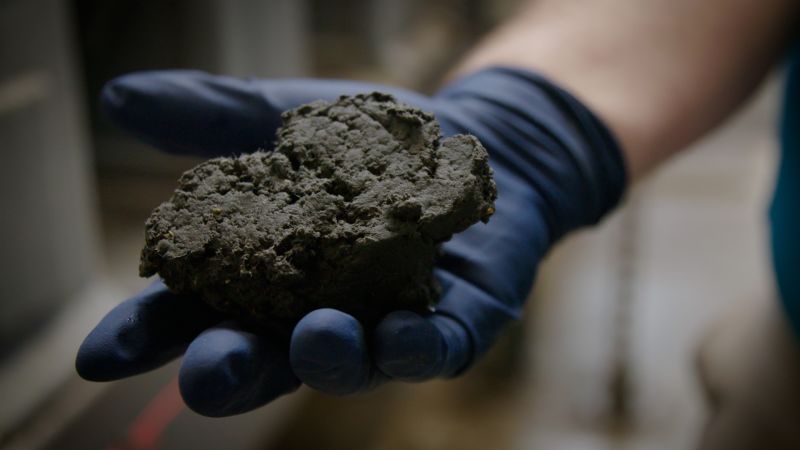
Chemicals found in sewage sludge that some farmers use to fertilize fields and pastures can pose a threat to human and animal health, the US Environmental Protection Agency said Tuesday.
Exposure to food from farms that use the sewage sludge can raise a person’s risk of developing cancer or other health conditions, it said. Under certain conditions, the human health risks from sludge used on farms are “several orders of magnitude” above what the EPA considers acceptable, the agency said.
While the EPA said Tuesday that the general food supply is not at risk, these “forever chemicals,” as they are sometimes called, can pose a threat to the health of people who drink a lot of milk or eat beef from farms that use the sludge.
The specific chemicals, perfluorooctanoic acid (PFOA) and perfluorooctanesulfonic acid (PFOS), belong to a larger class of per- and polyfluoroalkyl compounds (PFAS) and are considered “forever chemicals” because they take such a long time to break down in the environment and in the human body.
Examples of people most at risk are those who eat a serving or two of fish a week from a lake or pond contaminated by farm runoff, or people who drink at least a quart of milk a day from cows raised on pastures that use sewage sludge, according to the EPA’s draft risk assessment. People who eat pasture-raised beef or eggs from hens raised on land contaminated by sewage sludge could also be at risk.
This class of chemicals helps repel water and oil and was used in products like Teflon and firefighting foam for decades. Although manufacturing was largely phased out due to health concerns, the chemicals can still be found in hundreds of household items and in drinking water systems and are thought to be in the blood of 98% of the human population. Last year, the EPA designated PFOS and PFOA as hazardous substances under US Superfund law.
The EPA does not set limits on what levels of PFAS are acceptable in food, but federal agencies test food to see where PFAS is showing up. Of nearly 1,300 samples it tested since 2019, most were PFAS-free, or at least free of the PFAS chemicals that tests would be able to detect, according to the US Food and Drug Administration. Other organizations, including Consumer Reports, said they have found gaps in government testing and reported that their own tests detected forever chemicals in milk, including in some organic products. Organic farms do not use sewage sludge.
Sewage sludge has been used by some farmers for years. It is plentiful — wastewater treatment plants produce millions of tons of it — but the EPA said that less than 1% of fertilized acreage of productive agriculture land in the US uses it. Although 1% may not sound like a lot of farms, the Environmental Working Group, a nonprofit that has been advocating for the government to better regulate PFAS for decades, said that accounts for tens of millions of acres of farm fields across the country.
“It’s quite shocking in terms of the extent that these chemicals are leading to all this downstream contamination,” said Dr. David Andrews, EWG’s acting chief science officer. “The report highlights the incredible cyclic nature of PFAS contamination.”
Consumers can reduce their exposure to PFAS by using drinking water filters and monitoring water testing results in their area, but “those steps only get you so far,” Andrews said.
“Ultimately, this does require both federal and state efforts to end ongoing uses of these chemicals and to ensure that industry pollution is regulated to the fact that we are not adding to this contamination crisis.”
- Sign up here to get The Results Are In with Dr. Sanjay Gupta every Friday from the CNN Health team.
The federal government has the authority to regulate what ends up in sewage sludge, and it has set limits on the use of some metals, but it doesn’t regulate PFAS. In the absence of federal legislation, some states have introduced legislation to ban farmers from using sewage sludge on their fields. Maine is one state that has created such a ban.
The EPA said the findings of the report underscore the need to remove PFAS at the source, before the toxic chemicals would end up in the sewage sludge. Some ways to eliminate forever chemicals would be to remove them from everyday products that use them, or to require manufacturers to treat their polluted wastewater before it gets to wastewater treatment plants. The draft will be available for public comment for 60 days.
“This draft assessment provides important information to help inform future actions by federal and state agencies as well as steps that wastewater systems, farmers and other stakeholders can take to protect people from PFAS exposure, while ensuring American industry keeps feeding and fueling our nation,” EPA Acting Administrator Jane Nishida said.
